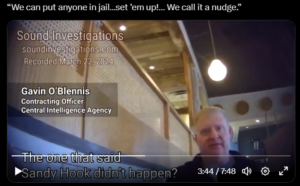Twitter, now rebranded as X under Elon Musk, has always faced one big challenge: how to turn...
Fake News
The phrase fake news was highly popularized around the time of the 2016 election. While it was meant to describe political news that often bordered on satire but which certainly convinced many people and was shared across social media, the use of the term has spread. Mainstream media (like CNN) and alternative media outlets (like Info Wars) often accuse each other of publishing fake news.
Twitter was once a town square for news. Now, it’s a digital shouting match drenched in fake...
Quitting Twitter—sorry, X—isn’t as simple as hitting “goodbye.” The platform (whatever Elon’s calling it this week) doesn’t...
Twitter was once the go-to platform for breaking news, celebrity meltdowns, and viral memes. Today, it’s a...
An undercover investigation conducted by a group named Sound Investigations, exposes an individual claiming affiliation with both...
Summary: Real Raw News is a satirical political news website that frequently peddles conspiracy theories. The site...
While the phrase “fake news” is not new, it became a trending topic in early/mid November 2016...
Summary: With the phrase “fake news” being tossed around, often with little context, many are left wondering...









